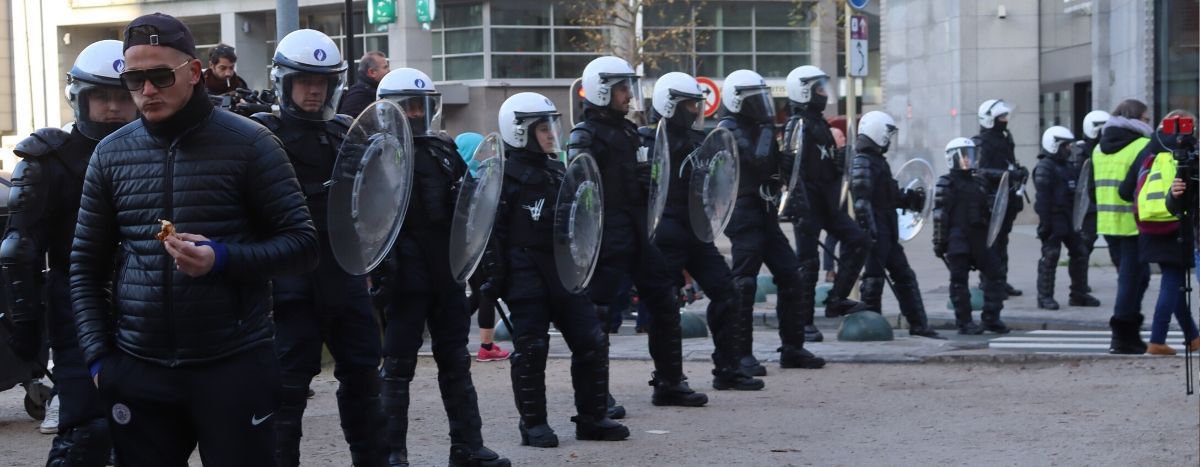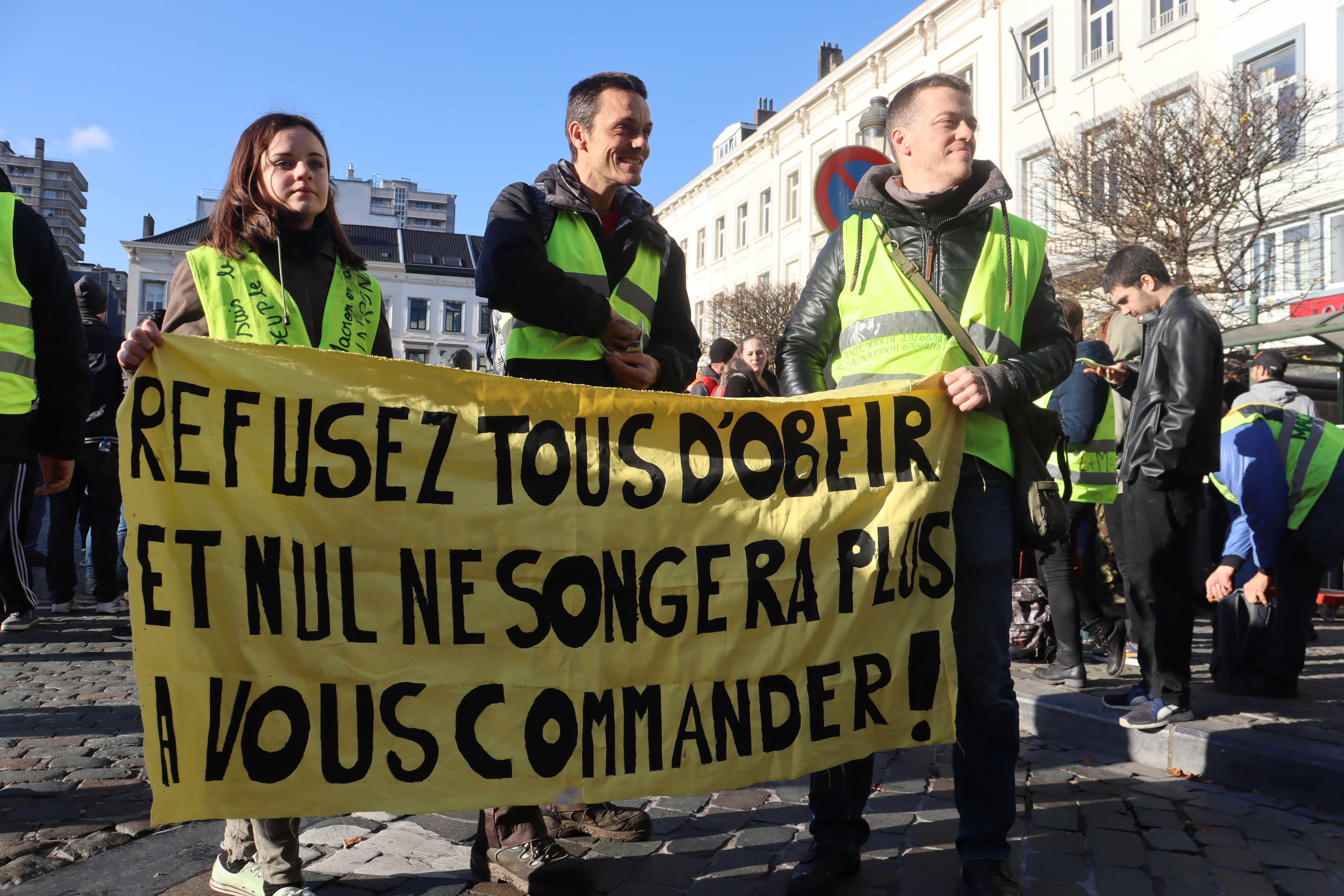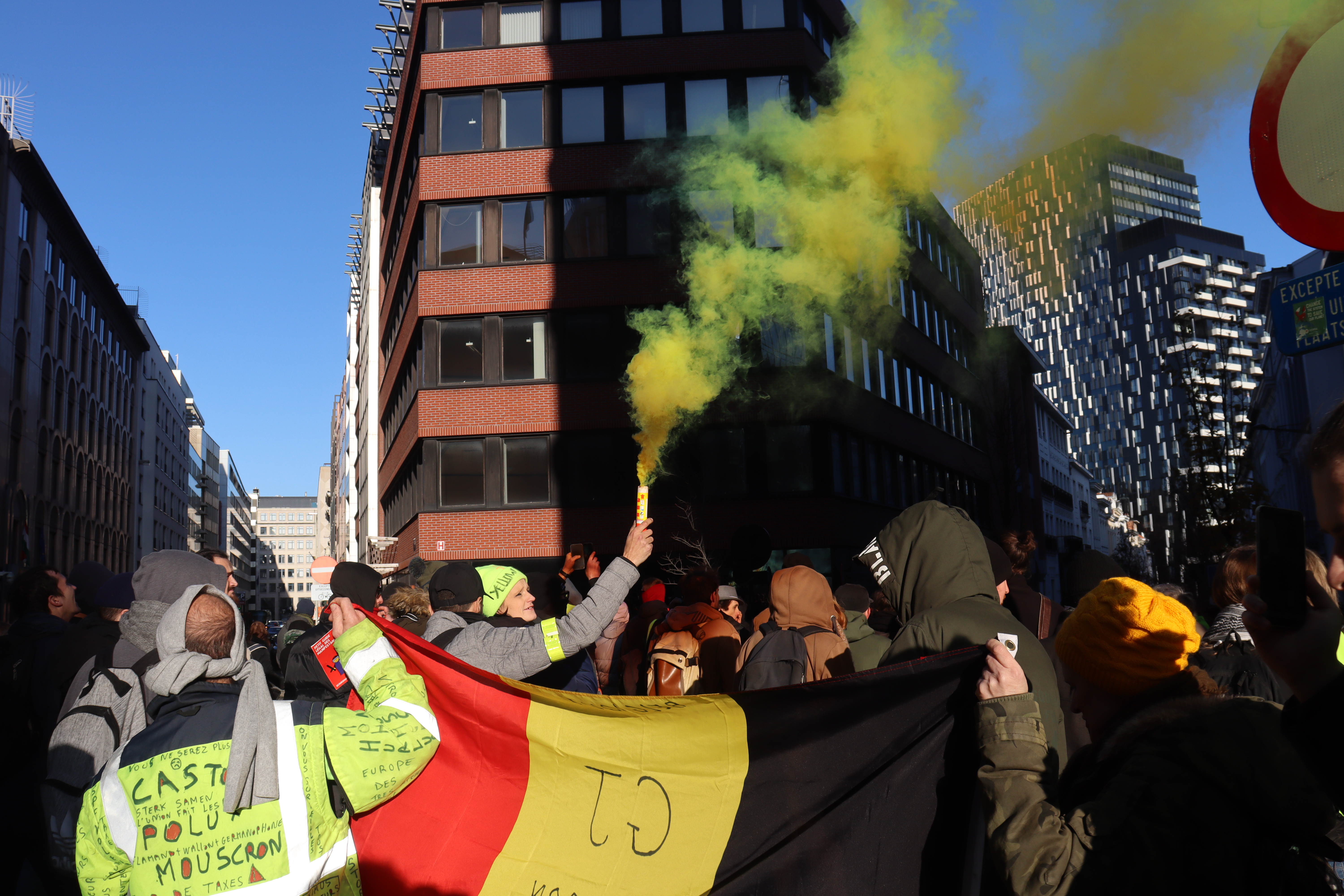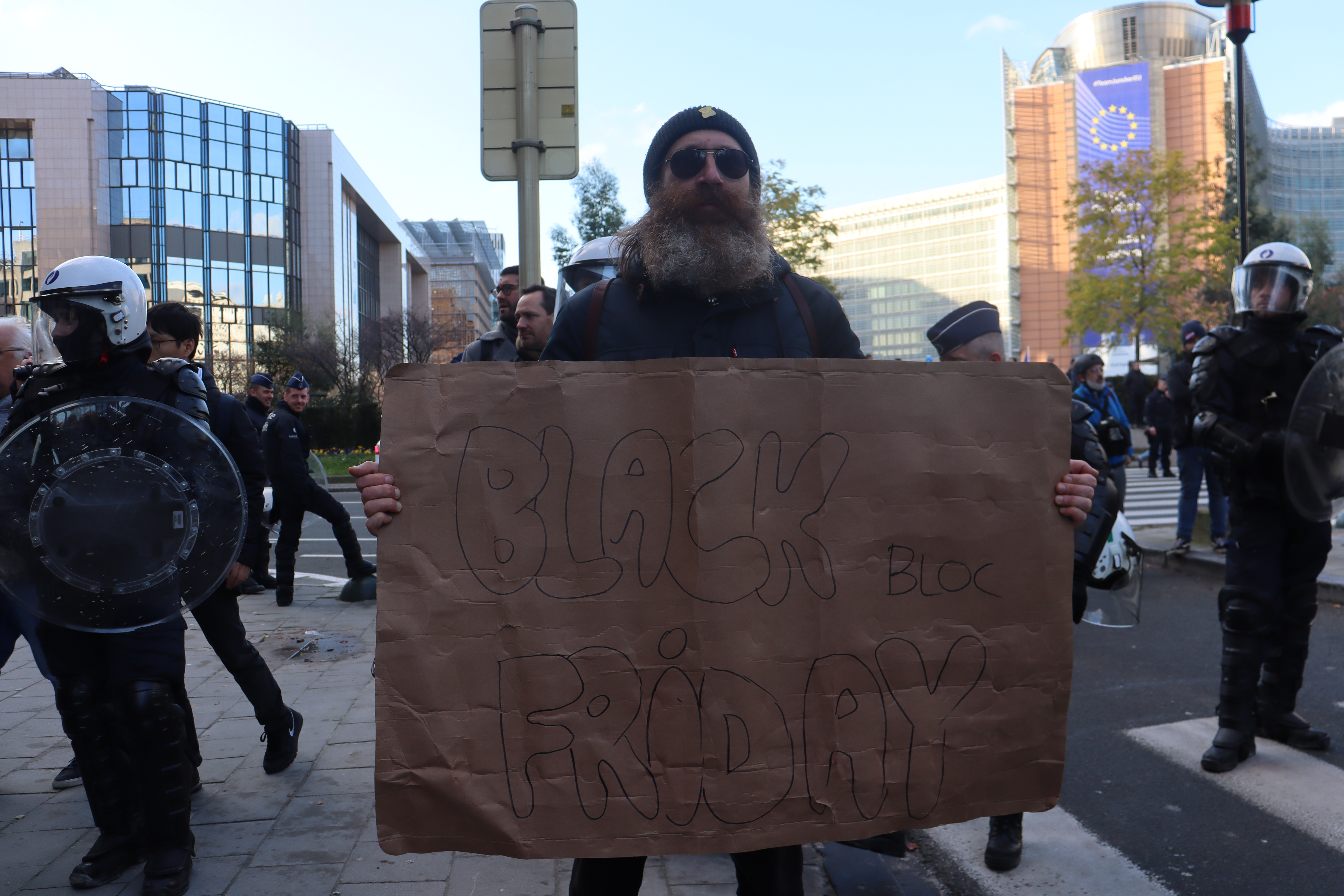
Police violence: To Infinity and Beyond?
Published on
Translation by:
Gabriel Buttigieg25 people with eye damage, five people with hands torn off, and two dead. That is the count in for French police violence since the beginning of Yellow Vest movement. This situation is particular to France, and has been condemned by the European Council, the European Parliament and the United Nations. The police in Belgium are also becoming tougher. Is this behaviour becoming normalized in demonstrations?
Social, climate and fiscal justice. Four words chanted by the protesters on Saturday, 30th November in Brussels during a demonstration of French, Belgian and Dutch Yellow Vests which had gathered in front of the European Commission. An international intersection which gathered only 250 people, according to the Brussels police estimations. Authorised and supervised by the police force, the demonstration lasted only two hours and saw the participants dispersing themselves in the Cinquantenaire park. Why this small turnout? "Demonstrators got into a tight spot before the meeting point as means of communication were boycotted by the yellow vests," says Jessica, 26, about the demonstration, whose Facebook page was consequently deleted.
"Here, 90% of the police support the Yellow Vests."
A year to the day after the first march of Yellow Vests in Belgium, the police say they maintain a good relationship with the protesters. "Here, 90% of the police support the Yellow Vests," affirms one of the policemen. "We aren't equipped like French police with pepper spray and riot guns in hand. But if the Yellow Vests put themselves on the streets, I think that the minister won't hesitate to put them in order," he let slip, bursting out laughing. An eventuality that would have an air of déjà-vu for Florence, a young street medic present during the last protest of the Yellow Vests in Paris. "We were in the middle of evacuating an injured protester. He was unconscious, but the police sent us a grenade even though we had our backs turned and we were helping someone," recalls the young Belgian about the previous protest in France.

Not accustomed to the police's slip-ups, the city of Brussels has just opened an investigation into the police for "assault and battery, verbal harassment and degrading treatment" following the testimony of about 30 Extinction Rebellion activists on 12th October of 2019. JJ, a member of the movement's legal team, pays the price for it. The 25 year-old protester was sat on tram rails when the police decided to charge at him. "After they surrounded us, they used water cannons and water bombs to separate the different discussion groups." He then found himself in the Etterbeek local police station, where he remained for ten hours on a charge of disrupting public order - a disproportionate accusation, according to the activist.
"The law authorises the police to use force only if the person they are faced with is violent. That wasn't the case with me." But the case is now reopened for another reason. "After breaking his jaw, a man was brought to the central police station on Rue du Marché du Charbon. The police started up an engine and forced him to inhale the exhaust fumes while extinguishing cigarette butts on his face," JJ testifies. The information was then confirmed by the spokeswoman for the police in Brussels and presented by Philippe Close, the mayor of the town, who stated: "If these claims turn out to be true, these acts are obviously unacceptable."
The Yellow Vest "promotion"
If these "strongarm" interventions are still not part of the Belgian police's habits, they are well and truly established in France. Journalist David Dufresne listed with Mediapart 860 cases of police violence during the Yellow Vest demonstrations between December 2018 and June 2019. "Some police officers have been decorated and even received a 'Yellow Vest promotion', as they call them amongst the police," he reveals in Salon des Livres et l'Alerte. About five officers under investigations for police violence were decorated last June by the Minister of the Interior, Christophe Castaner. This is a stance assumed by the government, who have been "extremely surprised by a movement that has gathered people, even beyond class," François Boulo in turn explains, a Yellow Vest lawyer known in the French media landscape. For him, there's no shadow of a doubt: police violence is recurring in France and particularly targets protesters. "The government trembled at the start of December 2019 and reacted with fear by giving a free hand to law enforcement and total impunity," he asserts, while recalling "that no condemnation has been issued despite more than 300 investigations carried out by the IGPN (the police disciplinary body) against them."

If the lawyer denounces police repression towards protesters, others point the finger at police repression against themselves. That was the case for Gaétan Alibert, a police officer and member of the Union "Sud Intérieur", who raised concerns about his corporation. His managers are not aware of his presence at the book fair Salon des Livres et l'Alerte. "That can be done in a regulatory way - through the IGPN tribunal - but also in an insidious way by disguised sanctions, transfers and 'phasing out'. It's delusional to think that a police officer can talk about the dysfunctions in their administration. In the police environment, corporatism is extremely strong."
Heading towards a Yellow cooperation?
Marked by police abuse, the episode on 12th October remains an exception amongst the different Extinction Rebellion protests, whose relationship with the police forces generally remains cordial, as was the case in London where last April you could hear the activists sing : "Police, we love you, we're doing this for your kids." On the Twitter profile for the French antenna of Extinction Rebellion, the environmental activists describe themselves as a "non-violent international civil disobedience working for a radical change in order to minimize the risk of ecological collapse."

Calling themselves radical "in terms of the goals", Extinction Rebellion's action are also considered too timid by some Yellow Vest activists, like Florence. "I think that they're still too nice and they don't make those in power afraid. If they bothered more, I'm sure that they would suffer the same repression as us."
More fear, so more violence? "Their structure is organised in a more traditional way and the forms of their actions are less revolutionary," says François Boulo. "Those in power are therefore more indulgent since they're not with the Yellow Vests, who they consider to be dangerous insurrectionists." This is a view that not all Yellow Vests share.
"We don't necessarily talk about it, but there is a de facto convergence with Extinction Rebellion," Priscillia Ludosky claims, a familiar face of the Yellow Vests behind the petition to lower the price of fuel. A strategy that is "logical, but that is not necessarily for everyone," she says of the movement's heterogeneity that, according to her, has raised awareness for "thousands of whistleblowers."
Cover Photo: © Safouane Abdessalem
See also: Extinction Rebellion: a well-organised revolt
See also: [VIDEO] In Paris, a dark protest for the right to abortion in Poland
Translated from Violences policières: vers l’infini et l’au-delà ?



